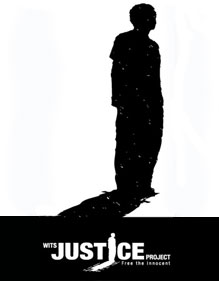|
Getting your Trinity Audio player ready...
|
 Statement on allegations made against the Wits Justice Project at the Oscar Pistorius sentencing hearing, 16 October, by Acting National Commissioner Zach Modise
Statement on allegations made against the Wits Justice Project at the Oscar Pistorius sentencing hearing, 16 October, by Acting National Commissioner Zach Modise
The Wits Justice Project was disturbed to hear the unfounded allegations made against it by Zach Modise, the acting national commissioner of the Department of Correctional Services (DCS). These allegations were made during the course of Acting Commissioner Modise’s testimony in the sentencing hearing of Oscar Pistorius, on Thursday 16 October 2014.
The Wits Justice Project (WJP) is an independent project based at the University of the Witwatersrand’s Department of Journalism. Our unique position both inside a university and within the journalism profession require all our output to be governed by strict rules of ethics and journalistic corroboration and verification. Numerous allegations were made against the WJP by Acting Commissioner Modise, and we exercise our right to refute such unfounded and incorrect statements.
Allegation one: the Wits Justice Project is run by two journalists
Fact: The WJP is run by Nooshin Erfani-Ghadimi, a development and humanitarian diplomacy professional. The WJP is part of the journalism department at Wits University, headed by Professor Anton Harber. Furthermore the WJP is governed by a distinguished advisory board, whose members are:
- Judge Johan Kriegler, former constitutional court and appeal court judge;
- Professor Tawana Kupe, deputy vice-chancellor of Wits University;
- Dr. Zonke Majodina, member of the UN Committee for Human Rights;
- Ms. Janet Love, part-time human rights commissioner for the South African Human Rights Commission; and head of the Legal Resources Centre;
- Ms. Alice Brown, international human rights advocate.
It is clear that the WJP is governed by an ethical framework, as well as a supportive structure for its work in upholding human rights and the South African Constitution. In 2013 the WJP was awarded the Wits Vice-Chancellor’s team award for academic citizenship.
Allegation two: the Wits Justice Project only writes stories that aim to depict the Department of Correctional Services negatively
Fact: the WJP writes about correctional facilities and aims to expose human rights abuses, as well as miscarriages of justice. While our stories expose rights violations, we are also quick to point out that the criminal justice system is part of a cluster of departments with responsibilities towards offenders and remand detainees. Indeed, as recently as 15 October 2014, the WJP publically applauded DCS’s attempts to reduce the remand detainee population via legislative change in South Africa’s parliamentary briefings, and highlighted that without the National Prosecuting Authority and judicial buy-in, their good progress might not yield results.
It is also worth noting that the issues raised by the WJP, concerning abuse, torture and prison conditions, are issues raised by a broad cross-section of stakeholders. The Judicial Inspectorate of Correctional Services has highlighted its own concerns regarding use of force in its 2013/2014 annual report; and NICRO, Sonke Gender Justice and the Civil Society Prison Reform Initiative have all called, in their own terms, for DCS to address similar issues of torture, sexual assault and related abuse. Evidence of this can be found in the minutes of the recent parliamentary portfolio committee meetings held on 14 and 15 October 2014.
Allegation three: the Wits Justice Project publishes unsubstantiated and/or unverified facts
Fact: the WJP does not go to print without hard evidence. Hard evidence means that for every investigation we publish, we have in our possession strong evidence including official and medical documents, eye-witness accounts, and other forms of corroboration.
Not only do we practice a rigorous Right of Reply policy, we actively solicit relevant comment from DCS on every article we publish that involves them in any way. We cannot be held responsible if DCS do not take up this opportunity that is repeatedly offered. We stand by every story we have published, knowing that evidence can be produced as and when we are required to respond to such grossly improper and unfounded allegations.
We publish our articles in a wide range of both South African and international media, including The Star, The Saturday Star, City Press, Mail and Guardian, Daily Maverick, The Guardian UK, amongst others. Our publishing statistics show that we have not favoured any publication over another when placing our work.
Our team of journalists – including Ruth Hopkins, who was specifically mentioned by Acting Commissioner Modise – have many years of journalistic experience in investigating abuses of rights in South Africa and beyond. The WJP has won the Webber Wentzel Legal Journalist of the Year Award three years in a row.
We strongly resent any implication that we respond or buy in to any agenda other than the one we set ourselves: that of investigating miscarriages of justice, human rights violations, and working towards the goal of a justice system that works better for all.
For further information, please contact:
Nooshin Erfani-Ghadimi
Project Coordinator
Tel: +27-11-717-4077
Email: Nooshin.Erfani-Ghadimi@wits.ac.za







